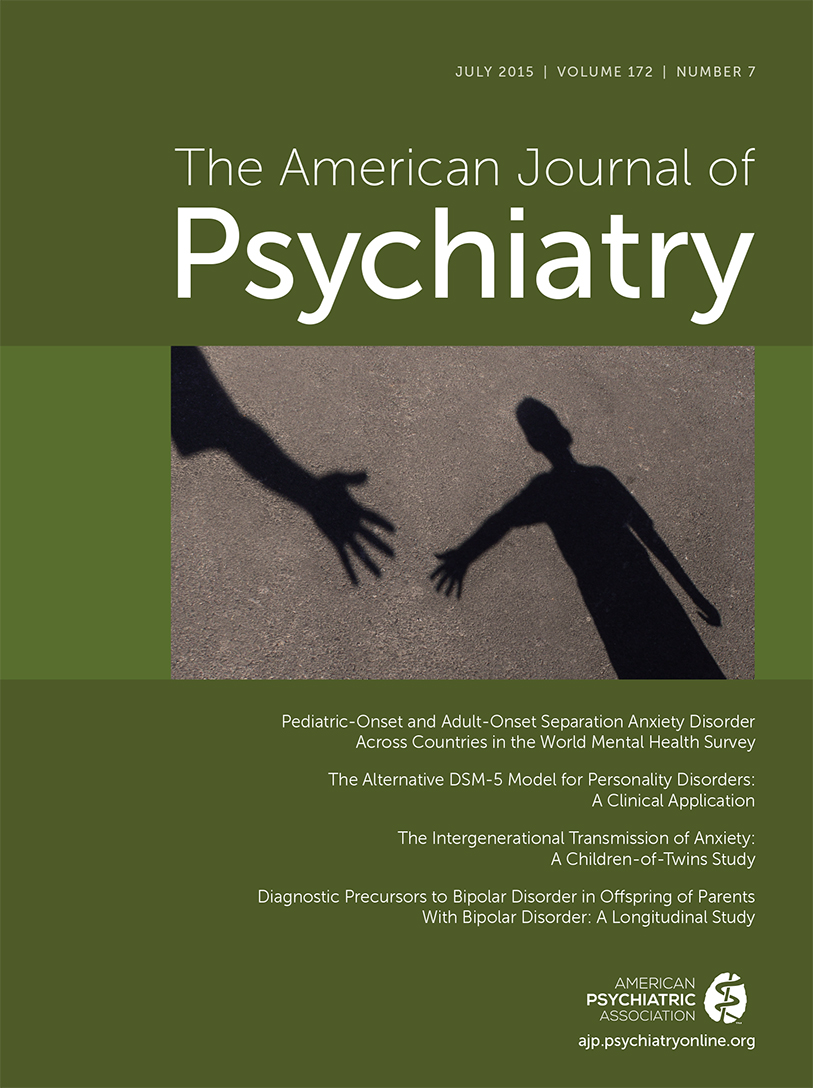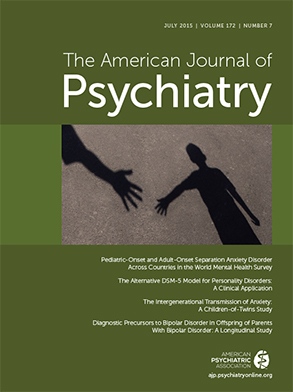Psychiatric disorders are increasingly recognized as among the most disabling conditions worldwide (
1). Many follow a recurrent or chronic course, highlighting the importance of a lifespan approach to care that includes strategies to prevent recurrence and optimize long-term wellness. Mindfulness-based cognitive therapy (
2) was developed and subjected to rigorous investigation as a psychosocial approach to preventing depressive relapse and promoting well-being among individuals with histories of recurrent depression (
3,
4). Recently, the field has witnessed broad interest in expanding its use among multiple clinical populations, including individuals with bipolar disorder.
Bipolar disorder is associated with high rates of recurrence, functional impairment, psychiatric and substance use comorbidity, and suicide (
5). Deckersbach and colleagues adapted the mindfulness-based cognitive therapy approach for individuals with bipolar disorder and have summarized their work in this thoughtfully written, clinically rich, and comprehensive treatment guide (
6). Their work is a welcome addition to efforts to develop novel strategies to improve care for people with bipolar disorder.
The book includes detailed information about the nature of bipolar disorder, and the authors are credited for emphasizing the importance of viewing mindfulness-based cognitive therapy within a broader context of care, including pharmacological management. The book not only includes many of the elements of the original mindfulness-based cognitive therapy manual but also clearly outlines the creative ways in which standard mindfulness-based cognitive therapy has been adapted for bipolar disorder. First, the program has been extended to include 12 sessions (compared with eight in the mindfulness-based cognitive therapy approach for unipolar depression). Additional sessions include a more detailed focus on specific emotions, such as anger and anxiety, which tend to co-occur with depression and mania, as well as an explicit focus on loving-kindness meditation. Second, the program includes an individual therapy component, designed to problem-solve crises and respond to symptom exacerbation, help members individualize mindfulness practices, deepen understanding of bipolar disorder and the ways in which mindfulness may be helpful, and problem-solve barriers to attending group sessions or completing home practice. Third, the sequencing of many of the core strategies within the program has been modified. For example, whereas standard mindfulness-based cognitive therapy reserves the focus on developing action plans to prevent future relapse to the later sessions, this approach includes an active focus on identifying warning signs and triggers and developing action plans much earlier in the program.
Most clinicians will find that the detailed session guides, rich case illustration, and transcripts for guiding mindfulness practices of great value. The availability of audio-recorded mindfulness practices also is a wonderful resource to support home practice. In addition, detailed instructions for leading the yoga-movement-based practices are included. The handouts compiled at the end of the manual offer a structured format for recording and facilitating skill development throughout the program.
The investigation of the use of mindfulness-based strategies with individuals with bipolar disorder stands at an opportune moment. At present, the evidence from studies using mindfulness-based cognitive therapy to target bipolar disorder is mixed; moreover, with one exception (
7), these studies have been small, uncontrolled trials (
8–
12). In their book,
Mindfulness-Based Cognitive Therapy for Bipolar Disorder, Deckersbach, Hölzel, Eisner, Lazar, and Nierenberg offer a compelling guide for future study. It is hoped that their work will support future clinical research efforts and inspire advancements in the expansion of the evidence base for psychosocial interventions for bipolar disorder. There is a clear and pressing need for clinical strategies to address gaps in current treatments in order to promote long-term well-being among individuals with bipolar disorder.


